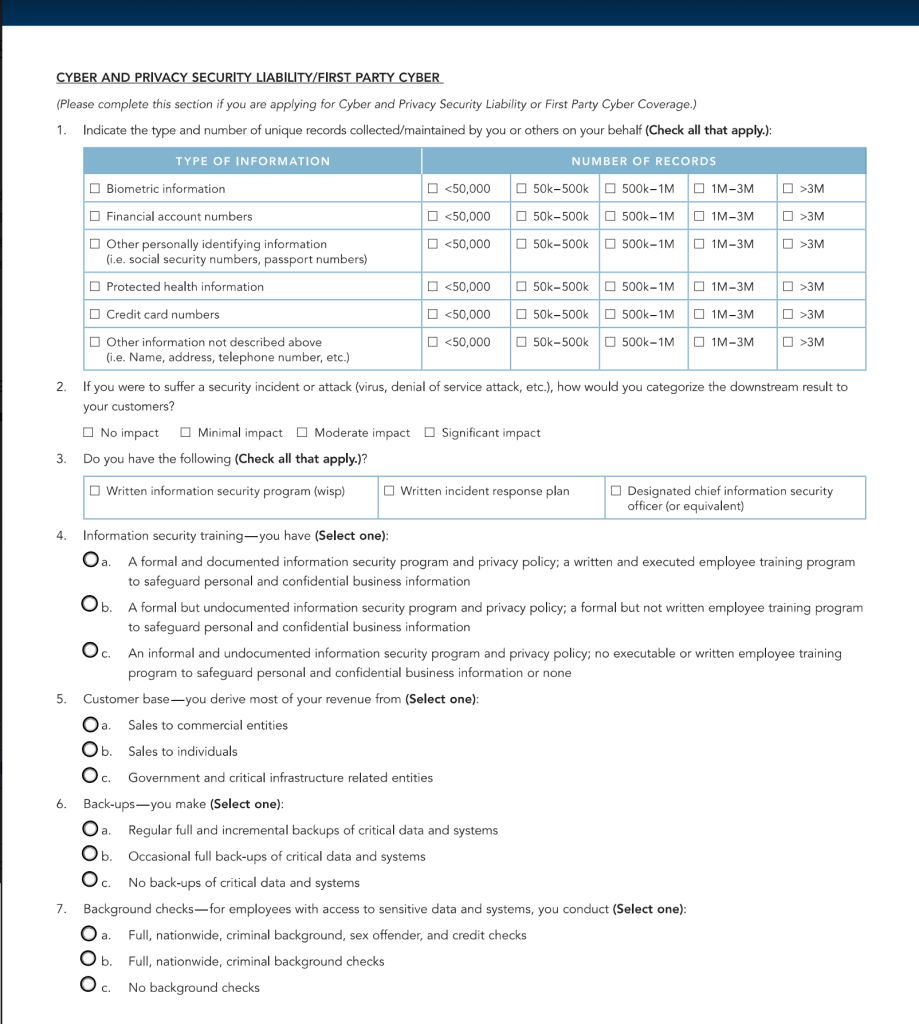Protecting Your Business with Cyber Insurance: Qualifications and Considerations to Keep in Mind
With today’s increasing risk of cyber threats, it’s essential for businesses to protect themselves from the potentially devastating risk of being attacked. Cyber insurance is a type of insurance that can provide coverage for losses resulting from a cyber-attack or data breach. However, getting cyber insurance can be a complicated process, and businesses must take certain steps to qualify for coverage. In this article, we’ll discuss how to qualify for cyber insurance and the considerations of getting insurance.
Qualifying for Cyber Insurance:
- Assess Your Cybersecurity Posture: To qualify for cyber insurance, businesses must demonstrate that they have adequate cybersecurity measures in place. Insurance companies typically require businesses to undergo a cybersecurity assessment, which involves an evaluation of their IT systems and infrastructure. The assessment may include penetration testing, vulnerability scans, and network analysis to identify any weaknesses in the system.
- Implement Cybersecurity Best Practices: Businesses must also implement cybersecurity best practices to qualify for cyber insurance. This includes having a robust password policy, regularly updating software and applications, and having a disaster recovery plan in place. It’s also important to train employees on cybersecurity best practices, such as how to identify phishing emails and avoid clicking on suspicious links.
- Data Encryption: Insurance companies may require businesses to encrypt sensitive data to qualify for coverage. Encryption is the process of converting plain text into a code that only authorized users can access. By encrypting sensitive data, businesses can protect themselves from data breaches and cyber-attacks.
- Incident Response Plan: Businesses must have an incident response plan in place to qualify for cyber insurance. An incident response plan is a documented process that outlines how the business will respond to a cyber-attack or data breach. The plan should include procedures for identifying and containing the attack, notifying stakeholders, and restoring systems and data.

Considerations for Getting Insurance:
- Coverage Limits: Businesses must determine how much cyber insurance coverage they need. Coverage limits vary depending on the insurance company and the policy. It’s important to consider the potential costs associated with a cyber-attack or data breach, such as the cost of notifying customers, paying for credit monitoring services, and legal fees.
- Policy Exclusions: Businesses should review the policy exclusions carefully to understand what is and isn’t covered. Some policies may exclude coverage for certain types of cyber-attacks or may have limitations on the amount of coverage available. It’s essential to work with an insurance agent who understands the business’s needs and can recommend the right policy.
- Premiums: The cost of cyber insurance premiums varies depending on the level of coverage, the size of the business, and the industry. It’s important to get quotes from multiple insurance companies and compare the costs and coverage levels.
- Claims Process: The claims process is another important consideration when getting cyber insurance. It’s essential to understand how to file a claim and what documentation is required. The claims process can be complicated, so it’s important to work with an insurance agent who can assist with the process.
Cyber insurance can provide businesses with much-needed protection against cyber-attacks and data breaches. However, businesses must take certain steps to qualify for coverage, including assessing their cybersecurity posture, implementing best practices, encrypting sensitive data, and having an incident response plan in place. When getting cyber insurance, businesses should consider coverage limits, policy exclusions, premiums, and the claims process. It’s essential to work with an insurance agent who understands the business’s needs and can recommend the right policy. By taking these steps and considerations, businesses can protect themselves from the financial and reputational damage that can result from a cyber-attack or data breach.
Whether you are acquiring a policy for the first time or renewing a previous policy, contact us, we can help ensure you meet the qualifications.



